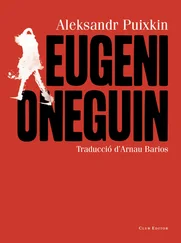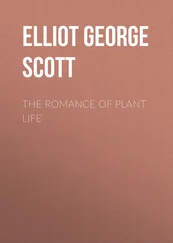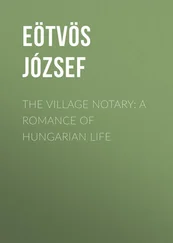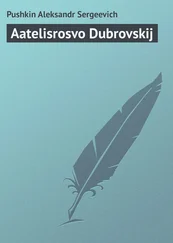Aleksandr Pushkin - Eugene Oneguine [Onegin]. A Romance of Russian Life in Verse
Здесь есть возможность читать онлайн «Aleksandr Pushkin - Eugene Oneguine [Onegin]. A Romance of Russian Life in Verse» весь текст электронной книги совершенно бесплатно (целиком полную версию без сокращений). В некоторых случаях можно слушать аудио, скачать через торрент в формате fb2 и присутствует краткое содержание. Год выпуска: 2007, Жанр: Поэзия, на английском языке. Описание произведения, (предисловие) а так же отзывы посетителей доступны на портале библиотеки ЛибКат.
- Название:Eugene Oneguine [Onegin]. A Romance of Russian Life in Verse
- Автор:
- Жанр:
- Год:2007
- ISBN:нет данных
- Рейтинг книги:4 / 5. Голосов: 1
-
Избранное:Добавить в избранное
- Отзывы:
-
Ваша оценка:
- 80
- 1
- 2
- 3
- 4
- 5
Eugene Oneguine [Onegin]. A Romance of Russian Life in Verse: краткое содержание, описание и аннотация
Предлагаем к чтению аннотацию, описание, краткое содержание или предисловие (зависит от того, что написал сам автор книги «Eugene Oneguine [Onegin]. A Romance of Russian Life in Verse»). Если вы не нашли необходимую информацию о книге — напишите в комментариях, мы постараемся отыскать её.
Eugene Oneguine [Onegin]. A Romance of Russian Life in Verse — читать онлайн бесплатно полную книгу (весь текст) целиком
Ниже представлен текст книги, разбитый по страницам. Система сохранения места последней прочитанной страницы, позволяет с удобством читать онлайн бесплатно книгу «Eugene Oneguine [Onegin]. A Romance of Russian Life in Verse», без необходимости каждый раз заново искать на чём Вы остановились. Поставьте закладку, и сможете в любой момент перейти на страницу, на которой закончили чтение.
Интервал:
Закладка:
XXXIII
Eugene, his pistol yet in hand
And with remorseful anguish filled,
Gazing on Lenski's corse did stand—
Zaretski shouted: "Why, he's killed!"—
Killed! at this dreadful exclamation
Oneguine went with trepidation
And the attendants called in haste.
Most carefully Zaretski placed
Within his sledge the stiffened corse,
And hurried home his awful freight.
Conscious of death approximate,
Loud paws the earth each panting horse,
His bit with foam besprinkled o'er,
And homeward like an arrow tore.
XXXIV
My friends, the poet ye regret!
When hope's delightful flower but bloomed
In bud of promise incomplete,
The manly toga scarce assumed,
He perished. Where his troubled dreams,
And where the admirable streams
Of youthful impulse, reverie,
Tender and elevated, free?
And where tempestuous love's desires,
The thirst of knowledge and of fame,
Horror of sinfulness and shame,
Imagination's sacred fires,
Ye shadows of a life more high,
Ye dreams of heavenly poesy?
XXXV
Perchance to benefit mankind,
Or but for fame he saw the light;
His lyre, to silence now consigned,
Resounding through all ages might
Have echoed to eternity.
With worldly honours, it may be,
Fortune the poet had repaid.
It may be that his martyred shade
Carried a truth divine away;
That, for the century designed,
Had perished a creative mind,
And past the threshold of decay,
He ne'er shall hear Time's eulogy,
The blessings of humanity.
XXXVI
Or, it may be, the bard had passed
A life in common with the rest;
Vanished his youthful years at last,
The fire extinguished in his breast,
In many things had changed his life—
The Muse abandoned, ta'en a wife,
Inhabited the country, clad
In dressing-gown, a cuckold glad:
A life of fact, not fiction, led—
At forty suffered from the gout,
Eaten, drunk, gossiped and grown stout:
And finally, upon his bed
Had finished life amid his sons,
Doctors and women, sobs and groans.
XXXVII
But, howsoe'er his lot were cast,
Alas! the youthful lover slain,
Poetical enthusiast,
A friendly hand thy life hath ta'en!
There is a spot the village near
Where dwelt the Muses' worshipper,
Two pines have joined their tangled roots,
A rivulet beneath them shoots
Its waters to the neighbouring vale.
There the tired ploughman loves to lie,
The reaping girls approach and ply
Within its wave the sounding pail,
And by that shady rivulet
A simple tombstone hath been set.
XXXVIII
There, when the rains of spring we mark
Upon the meadows showering,
The shepherd plaits his shoe of bark, [69] In Russia and other northern countries rude shoes are made of the inner bark of the lime tree.
Of Volga fishermen doth sing,
And the young damsel from the town,
For summer to the country flown,
Whene'er across the plain at speed
Alone she gallops on her steed,
Stops at the tomb in passing by;
The tightened leathern rein she draws,
Aside she casts her veil of gauze
And reads with rapid eager eye
The simple epitaph—a tear
Doth in her gentle eye appear.
XXXIX
And meditative from the spot
She leisurely away doth ride,
Spite of herself with Lenski's lot
Longtime her mind is occupied.
She muses: "What was Olga's fate?
Longtime was her heart desolate
Or did her tears soon cease to flow?
And where may be her sister now?
Where is the outlaw, banned by men,
Of fashionable dames the foe,
The misanthrope of gloomy brow,
By whom the youthful bard was slain?"—
In time I'll give ye without fail
A true account and in detail.
XL
But not at present, though sincerely
I on my chosen hero dote;
Though I'll return to him right early,
Just at this moment I cannot.
Years have inclined me to stern prose,
Years to light rhyme themselves oppose,
And now, I mournfully confess,
In rhyming I show laziness.
As once, to fill the rapid page
My pen no longer finds delight,
Other and colder thoughts affright,
Sterner solicitudes engage,
In worldly din or solitude
Upon my visions such intrude.
XLI
Fresh aspirations I have known,
I am acquainted with fresh care,
Hopeless are all the first, I own,
Yet still remains the old despair.
Illusions, dream, where, where your sweetness?
Where youth (the proper rhyme is fleetness)?
And is it true her garland bright
At last is shrunk and withered quite?
And is it true and not a jest,
Not even a poetic phrase,
That vanished are my youthful days
(This joking I used to protest),
Never for me to reappear—
That soon I reach my thirtieth year?
XLII
And so my noon hath come! If so,
I must resign myself, in sooth;
Yet let us part in friendship, O
My frivolous and jolly youth.
I thank thee for thy joyfulness,
Love's tender transports and distress,
For riot, frolics, mighty feeds,
And all that from thy hand proceeds—
I thank thee. In thy company,
With tumult or contentment still
Of thy delights I drank my fill,
Enough! with tranquil spirit I
Commence a new career in life
And rest from bygone days of strife.
XLIII
But pause! Thou calm retreats, farewell,
Where my days in the wilderness
Of languor and of love did tell
And contemplative dreaminess;
And thou, youth's early inspiration,
Invigorate imagination
And spur my spirit's torpid mood!
Fly frequent to my solitude,
Let not the poet's spirit freeze,
Grow harsh and cruel, dead and dry,
Eventually petrify
In the world's mortal revelries,
Amid the soulless sons of pride
And glittering simpletons beside;
XLIV
Amid sly, pusillanimous
Spoiled children most degenerate
And tiresome rogues ridiculous
And stupid censors passionate;
Amid coquettes who pray to God
And abject slaves who kiss the rod;
In haunts of fashion where each day
All with urbanity betray,
Where harsh frivolity proclaims
Its cold unfeeling sentences;
Amid the awful emptiness
Of conversation, thought and aims—
In that morass where you and I
Wallow, my friends, in company!
END OF CANTO THE SIXTH
CANTO THE SEVENTH
Moscow
Moscow, Russia's darling daughter,
Where thine equal shall we find?'
Who can help loving mother Moscow?
Интервал:
Закладка:
Похожие книги на «Eugene Oneguine [Onegin]. A Romance of Russian Life in Verse»
Представляем Вашему вниманию похожие книги на «Eugene Oneguine [Onegin]. A Romance of Russian Life in Verse» списком для выбора. Мы отобрали схожую по названию и смыслу литературу в надежде предоставить читателям больше вариантов отыскать новые, интересные, ещё непрочитанные произведения.
Обсуждение, отзывы о книге «Eugene Oneguine [Onegin]. A Romance of Russian Life in Verse» и просто собственные мнения читателей. Оставьте ваши комментарии, напишите, что Вы думаете о произведении, его смысле или главных героях. Укажите что конкретно понравилось, а что нет, и почему Вы так считаете.











